Humans
Sign up for our newsletter
We summarize the week's scientific breakthroughs every Thursday.
-
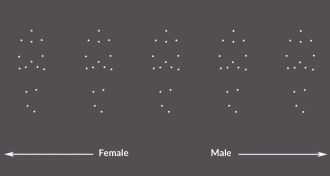 Neuroscience
NeuroscienceHumans can sniff out gender
A new study adds to controversy of whether people have pheromones.
By Meghan Rosen -
 Psychology
PsychologyLeonardo da Vinci may have invented 3-D image with ‘Mona Lisa’
A mysterious copy of the ‘Mona Lisa’ combines with the Louvre painting to make a stereoscopic image of the woman with the enigmatic smile.
-
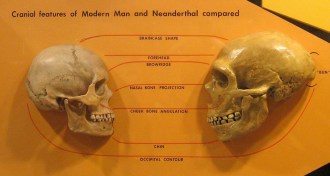 Humans
HumansNeandertals’ inferiority to early humans questioned
Early modern humans may not have been smarter or more technologically or socially savvy than their Neandertal neighbors.
-
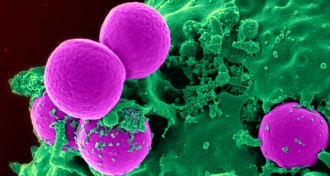 Health & Medicine
Health & MedicineDrug resistance has gone global, WHO says
World Health Organization reports that antibiotics are failing worldwide against infections.
By Nathan Seppa -
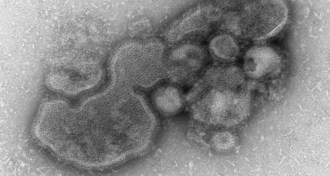 Health & Medicine
Health & MedicinePotential H7N9 bird flu vaccine shows promise
An early trial of a bird flu vaccine suggests that the treatment could be used to counter the potentially deadly H7N9 flu virus.
-
 Health & Medicine
Health & MedicineWith help from pig tissue, people regrow muscle
Noncellular material implanted in patients attracts stem cells to fix injuries.
By Nathan Seppa -
 Science & Society
Science & SocietyStudents retain information better with pens than laptops
Compared with typing on a laptop, writing notes by hand may lead to deeper understanding of lecture material.
-
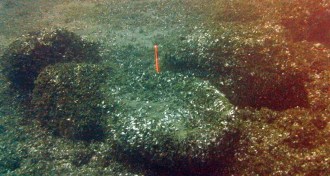 Anthropology
AnthropologyLake Huron holds 9,000-year-old hunting blinds
The human-made hunting blinds were arranged to drive caribou into a centralized "kill zone," suggesting cooperation among ancient hunters.
-
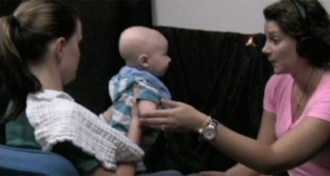 Psychology
PsychologyBabies learn some early words by touch
Tactile cues provided by caregivers give infants a leg up on learning words for body parts.
By Bruce Bower -
 Health & Medicine
Health & MedicineInduced labor doesn’t necessarily kick off cascade of interventions
A large analysis of clinical trials finds that jump-starting labor actually leads to fewer C-sections, a finding that runs contrary to common birthing wisdom.
-
 Genetics
GeneticsY chromosome gets a closer examination
The Y chromosome may play a larger role in Turner syndrome and in health and disease differences between males and females than previously thought.
-
 Psychology
PsychologyWord-streaming tech may spell trouble for readers
Technologies like Spritz that display one word at a time on a screen reduce reading comprehension, a new study concludes.
By Bruce Bower